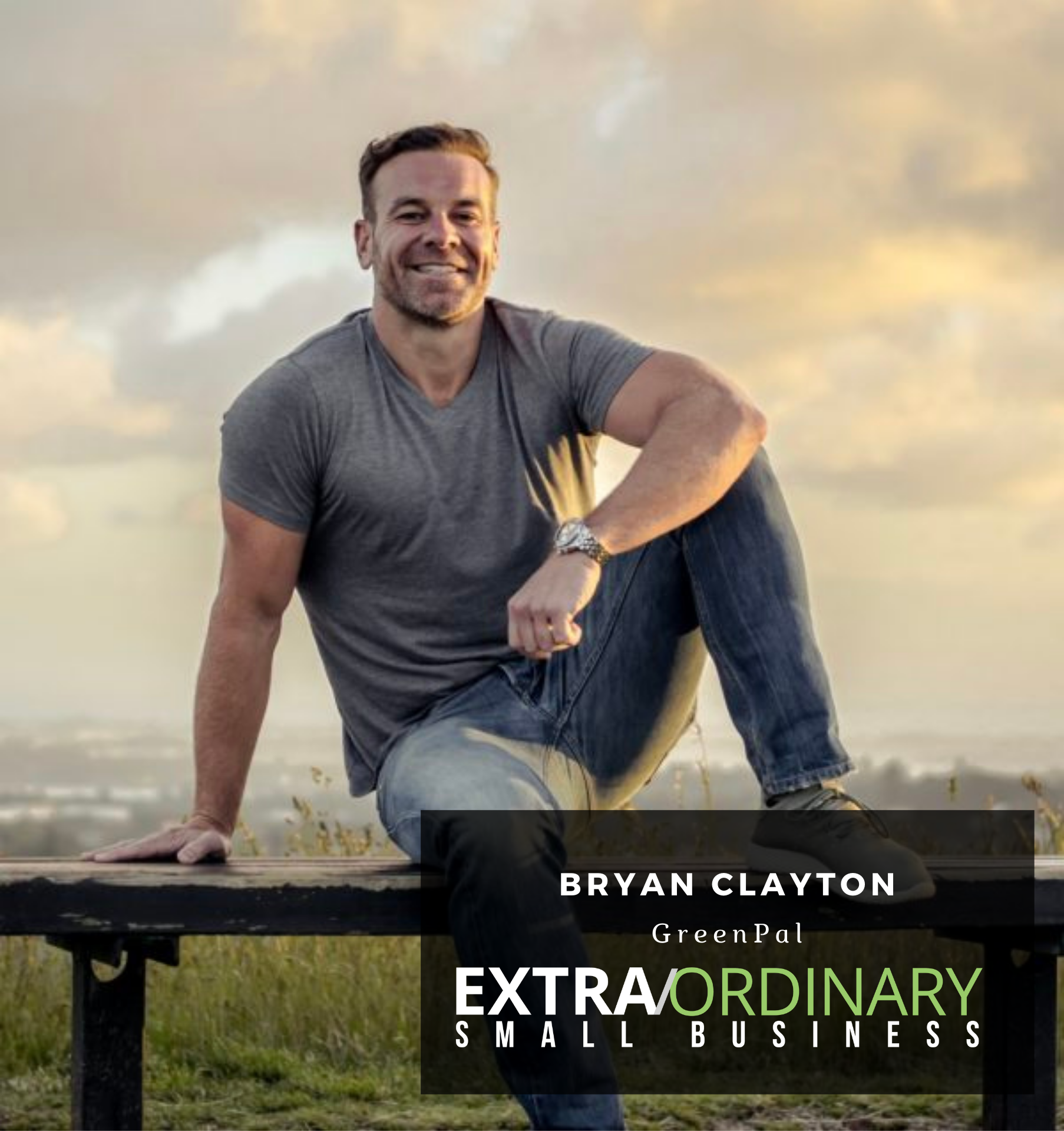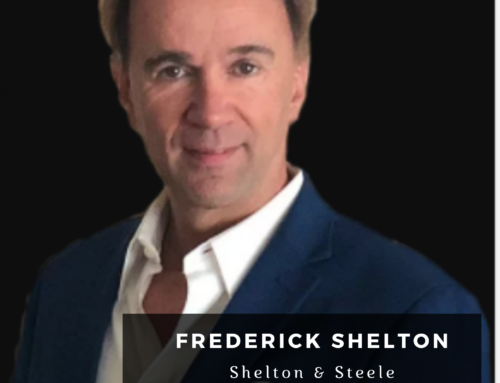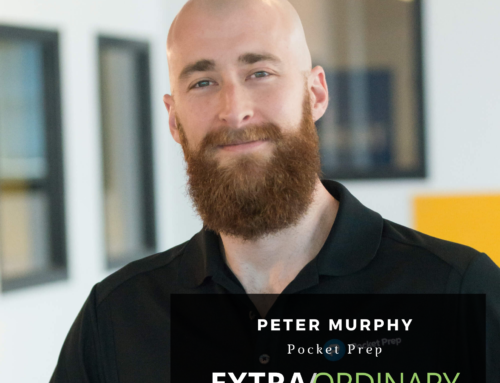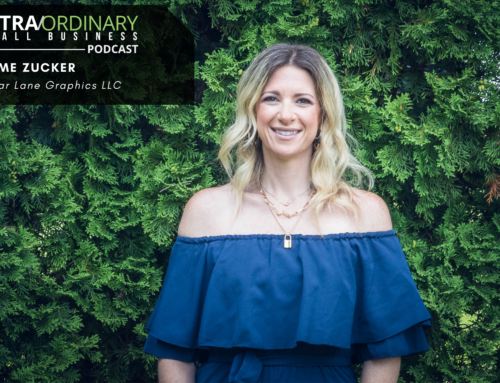
Let’s start with the one-liner – what is your company? What do you sell?
GreenPal is the Uber for lawn mowing. Visit yourgreenpal.com for more information!
Tell us your origin story.
Bryan Clayton: When starting a new startup it’s quite tempting just to pick a name and go, however picking your name is kind a like getting married, it’s fairly difficult to undo later.
When we were pondering what to name our company we wanted to bake in our “Why.”
Why does your company do what it does? Why do we get out of bed in the morning and why does anybody care?
Our company is built to serve those that serve others. Our mission is to provide a platform where any hard-working lawnmowing professional can plug-in and make a good living and enhance their livelihood on top of our platform, getting new customers and getting paid quickly for the work they do.
When crafting our brand name GreenPal we wanted to bake these values into our name.
The lawn and landscaping in the street are known as the green industry, so we knew we wanted to incorporate that into our brand name. In conjunction with that our mission is to facilitate the relationship between a homeowner and their lawn care service professional, we want to introduce them and foster that relationship between them almost to where they are building a lasting friendship or perhaps even becoming pals.
So we combined those two thought sequences into one brand-name and GreenPal was born.
Sometimes people ask how we came up with the name and it offers us a good opportunity to explain our “Why” to stakeholders, customers, and vendor partners.
Did you need a lot of capital to start your business? How did you finance your business in the beginning?
Bryan Clayton: Debt can magnify mistakes however when used wisely it can be a powerful fulcrum. When we launched our business two years ago we had no collateral or money and no outside capital to get started with. Like most tech startups we went on the fundraising circuit talking to angel investors and venture capitalists begging for money to get started. However, our vision was just too broad in scope and luckily we got turned down and told no over 40 times. I was fortunate enough to solid personal credit and this enabled my team to secure an unsecured line of credit for $85,000 to get our business started even with no collateral. We paid that off in the first year and this year we’re going to surpass $13 million in annual revenue. Good thing early investors told us to know because with their capital they would have owned and controlled 30% of our business and because we are self-funded. My cofounders and I own it all.
Was this an area for which you had passion before you started the business, or did you see a need and move to serve it?
Bryan Clayton: I’m passionate about the lawn care industry, I have spent my entire life in this business. I started cutting grass in high school and grew my little lawnmowing business to over 150 employees, now I am CEO of GreenPal making the entire industry run smoother and faster for homeowners and lawn care services.
How has the business evolved over time?
Bryan Clayton: When we first started out we were focused on being the cheapest way to get your grass cut, but as time has gone on we realize that people don’t necessarily want the cheapest price, moreover they want a fast way to get their lawn mowed on the same day and reliably so so overtime we have pivoted our business model to be more focused on delivering speed and not the cheapest price.
How did you grow? Tell us about a moment, or moments, in the early days that were “big moments” for the business. What moved the needle substantially?
Bryan Clayton: Launching a lawn mowing app in the middle of the summer in Nashville with
no user acquisition strategy was daunting. When we launched, we needed
people to use our invention, right now, like yesterday. So, taking a page out my former playbook of building a landscaping company, we started hanging door hangers all over Nashville. Distributing approximately 10,000 of them over many hot days was quite an experience. Ultimately, we got the early testing users we needed, and we learned the hard way that we had to quickly become experts in growth, digital marketing, useracquisition very quickly. So we taught ourselves the discipline of SEO and began to build equity in it as a marketing channel.
While it’s a slow process, investing in SEO has proven to be an effective channel for our startup to acquire a steady stream of customers to use our product without having to burn capital on paid channels. Ultimately, a marketplace model like our requires a lot of liquidity to work, and SEO serves as a good user acquisition channel to compliment that.
Every successful small business owner has to navigate the world of expansion. And choosing how to expand is just as important as choosing how NOT to expand. Tell us about forks in the road on your journey.
Bryan Clayton: The way Covid has affected our marketing for our service based business is that we’ve had to adjust our value proposition. Normally we are the cheapest way for a homeowner to get their grass cut, but now we the way for homeowners to order lawnmowing service and a contactless manner. This has caused us to adjust our copy in our Google ad words campaign‘s and Facebook marketing campaigns and we have seen a lift in conversion as high as 17% and some markets. My advice to fellow entrepreneurs is the use of the coronavirus against itself. What do I mean by that? Figure out a way to embrace contactless business transactions and punch that up as a feature of your service offering. Our system has over 9500 vendor partners in seven states throughout the county. Embracing social distancing due to the coronavirus we have changed up processes for how our vendor partners interact with their clients. We now have instituted a contactless procedure for when a homeowner hires a lawncare professional to mow their yard. Previously they were required to do a walk-through with the client to go over what’s included in the service and manage expectations, but now homeowners can choose to have a contactless option to where they can hire a lawnmowing Service to come and cut the grass without having to speak with them or meet with them face-to-face. Technology will find ways to help limit the spread of corona even when it comes to grass cutting.
As you’ve grown, you’ve undoubtedly had to delegate. How did you tackle that challenge?
Bryan Clayton: I think often small business owners conflate the idea of delegation with one of building a system and process around themselves. Sure the business owner doesn’t need to be in the trenches doing the remedial tasks such as data entry tanking the office phone calls and other redundant tasks however I believe small business owners are quick to delegate tasks without first building the system that operate the core of the business . I would recommend spending 90% of your time crafting the operational system and then filling the rolls in that system as part of your delegation initiative, rather than just handing tasks off to random team members. Building the operational system is crucial to creating a business that can run without you, and and ultimately delegation is a part of filling the roles in that system.
You know the axiom – no risk, no reward. Tell us about a time you took a big risk. Did it pay off? Did it fail? Or you had a completely different outcome than expected?
Bryan Clayton: “I love Mario Andretti’s quote. “”if you’re not scared you’re not driving fast enough.””
Last summer our business was faced with the dilemma. We desperately needed a robust mobile app to complement our website however neither my cofounder know. I knew how to code in mobile IOS .So late last year we had to take a big risk. A new mobile app that will do everything we wanted to do was $155,000.
We are self-funded and we did not have that kind of cash laying around, the most we could come up with across my cofounder and I was about half that. So we were faced with the dilemma, Do we wait another year and save up that kind of cash or do we take on a little bit of debt and get it now?
We decided to take a big gamble and put the balance on our Chase credit card. Luckily my previous company had a robust credit score and I had a healthy credit line from Chase. We ended up funding the entire mobile production project out of savings and the rest on my credit card and have since paid back half of the balance already. In order to make money you have to spend money, and our credit line allowed us to expand our business without having to sell equity which is what most tech start ups do.
Do you/did you have a co-founder or did you go at it alone? Tell us about that decision, and how that affected you as a leader.
Bryan Clayton: If you’re going to start a technical company and you are not technical yourself then you need to find a solid tech cofounder… But what do you do?
So you’re starting your startup and you’ve got a technical cofounder but you yourself don’t know how to write any code? I found myself in this exact situation when my cofounder and I started GreenPal in 2015. The first thing I recommend is learning some basics, HTML and CSS a little bit of JavaScript that way you have some sort of context for what your cofounder is having to take on. The next thing that you can do is become head of QA for everything that your cofounder is building… What does this mean? It means that you take on all of the testing that he or she is building, you test all of the interfaces on all of the different screen sizes such as different mobile phones browsers etc. This will help speed things up for your cofounder and they will appreciate you relieving them of that burden it will also help keep you in the trenches on what is being built and how good or bad the progress is going. Put another way, you become a QA analyst testing and checking everything that you’re cofounder is building and that will help speed things up dramatically.
Have you ever considered taking on additional partners, venture funding or bank money to grow the company, or have you always bootstrapped?
Bryan Clayton: We have declined any outside investment mainly because we want to be in control of our destiny, I’m lucky to have two solid cofounders who have helped us grow our business from zero customers to now over 200,000
Tell us about some of your sacrifices along your small business journey.
Bryan Clayton: I have a motto that I tell all of our new recruits that join our small fast-growing company.
Being an entrepreneur or working for a start up is like getting punched in the nose every day and working in Corp America is like being water boarded. So you just pick which kind of pain you’d like to have.
At our company we ask ourselves three things and large organizations can implement this into their companies to avoid losing entrepreneurially centered employees .
What are we doing?
Why are we doing?
And what is my role?
The benefits of being an entrepreneur or even working in a small start-up:
1 You’ll have the opportunity to grow a more diverse set of skills and you’ll need to take initiative on them more often. When you work for a large organization tasks are delegated to you from the top-down , conversely when you work for a smaller company the number of new initiatives that you need to implement every day or 10x of that of a big company.
2 Smaller companies tend to be more loyal to their people than large corporations were you really just a number on a spreadsheet. When times get tough as they did in the last great recession smaller companies held onto their people longer as they were treated like family as opposed to the wholesale layoffs we saw in corporate America.
3 Lastly, smaller organizations tend to be more mission-driven and focused around a central why versus a large organization that is just solely profit-driven.
What is the most gratifying thing about what you do?
Bryan Clayton: Definitely sowing seeds of prosperity for my team and the users of our app.
Who is a leader or someone that you admire? Why?
Bryan Clayton: Mark Cuban says the least amount of money you can live on the greater your options.
I’ve always looked up to Mark because he gives pragmatic advice about how to build businesses from scratch.
What is a secret weapon that you have that would surprise people?
Bryan Clayton: I’m a generalist, you can put me in any role in any business and I’ll be able to help drive it forward.
If for this business, what would you be doing as a career right now?
Bryan Clayton: I’ve never had a boss I’ve always owned and operated my own businesses so I would probably be working for somebody else so I could learn their business processes and how I can make them better starting my own company in that same exact space.
Where do you see yourself in 10 years?
Bryan Clayton: I honestly see myself still as a CEO of GreenPal we have so much work left to do, international expansion is on a roadmap.
Finish this sentence: “I would not be standing here today if not for ____”
Bryan Clayton: I would not be standing here today if it wasn’t for my mother and father, they were instrumental in teaching me work ethic, doing a job well done, and holding myself accountable to always be growing.
What’s one piece of advice that you would give your 18-year-old self?
Bryan Clayton: Focus on the things that matter, 95% of what you are doing does not matter.




Leave A Comment